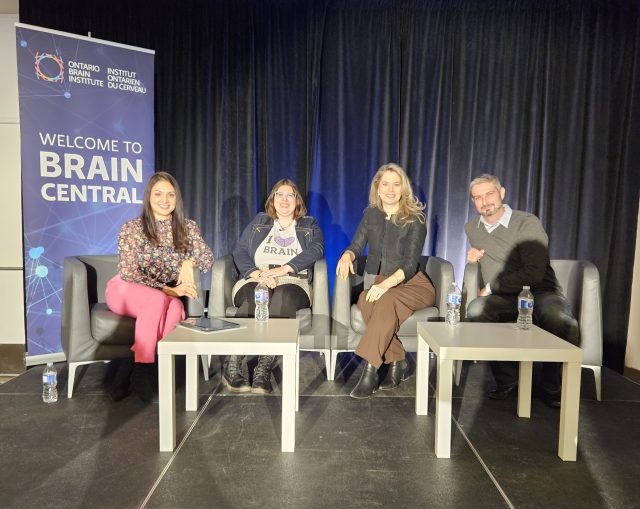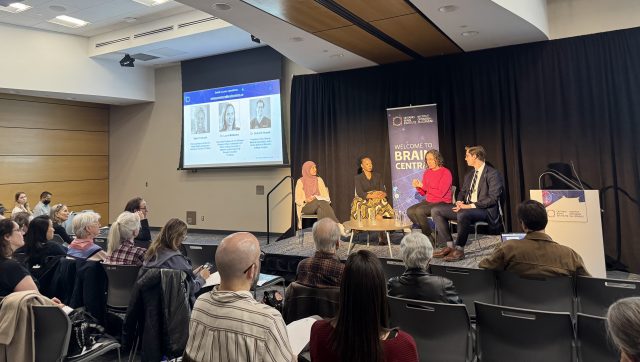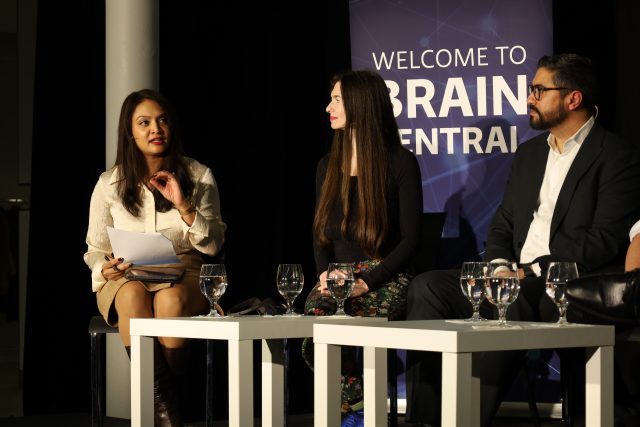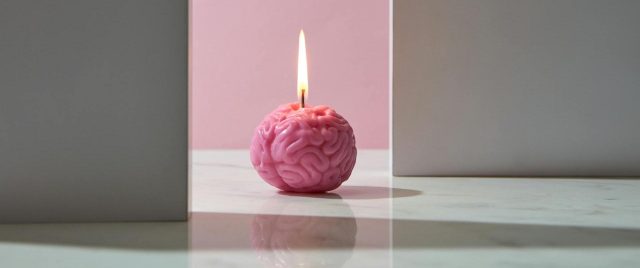“Really good sleep on a consistent basis affects your ability to optimize your performance at work, and it impacts your relationships with friends and family around you.” – Ontario Brain Institute Vice-Chair Heather Chalmers, in her introductory remarks to our recent Public Talk ‘Sleep and Relax for Brain Health’
In an era where burnout and sleep deprivation are increasingly prevalent, it is imperative to examine the relationship between our sleep patterns, the quality of our rest, and the resilience of our cognitive faculties. That is why the Ontario Brain Institute is working with our partners to change the way we study sleep – and how practicing mindfulness can help keep our brains at their best.
To further this conversation, we recently hosted an enlightening panel discussion featuring experts at the forefront of psychology, education, and neurophysiology: Dr. Stuart Fogel, Director of the University of Ottawa Sleep Research Laboratory; Maryanne Lewis, a high school teacher at an Ottawa private school that specializes in students with dyslexia and other learning differences; and Dr. Alison Smith, co-founder of Roga – a mental healthcare platform and wearable device to manage stress and burnout. The conversation was moderated by Dr. Krishana Sankar, a Doctoral Researcher at the University of Toronto in the Faculty of Medicine.
Before the panel began, mindfulness coach Erika Caspersen led the at-home and in-person audience through a guided meditation. This helped prepare everyone for Krishana’s big question to kick off the conversation: “What does good sleep look like?”
Stuart’s answer might be a surprise for some. He pointed out that while we are often given the benchmark of eight hours a night being the goal, that’s more of an average than a universal goal.
“Some of us are going to get by fine on five or six hours of sleep,” he said. “But some people are going to need nine or ten to feel good.”
Stuart also stressed that our sleep patterns will change throughout the course of our lives – decreasing from the time we are a baby to the time in our early twenties, and then perhaps increasing again as early as our mid-thirties.
Maryanne echoed this fact, sharing that while she was a fantastic sleeper as a baby, everything changed as she entered into her teenage years and developed anxiety and depression.
“We don’t really know if the insomnia was causing the mental health stuff, or mental health stuff was causing the insomnia.” she said. “Personally, I think it was a bit cyclical.”
Dealing with the intersection of mental wellbeing and healthy sleep is what drove Alison to create a wearable tool called Roga.
The device is worn behind the ears like headphones, stimulating the peripheral nerve behind each ear which reduces worry and rumination. The device is paired with an app, which uses artificial intelligence to provide personalized, guided meditations.
“Users describe it as becoming more resilient and as they use the device,” she said. “They also report feeling more relaxed, and that their sleep quality is improved.”
In response to an audience question, Stuart explained that mindfulness practices can have a similar impact.
“If you’re successful at meditating you can alter your brain waves,” he said. “And those alterations in your brain waves can actually be more conducive to sleep.”
A mindfulness practice that helps Maryanne navigate sleep is journaling before bed – especially if she finds her mind is racing.
“When your brain is so full and you’ve got so much going on, you can write it down,” she said. “You can let It go, but you still have the idea.”
Another tool when looking to improve sleep is an often-unpopular piece of advice: eliminating – or at least limiting the use of – alcohol, cannabis, and caffeine. Stuart explained why.
“All of these things might help you to fall asleep,” he said. “But ultimately they’re detrimental to the sleep that you’re going to get.”
As much as getting a good night’s sleep can be challenging for everyone, it can be exacerbated by issues like dementia or mild cognitive impairment. Alison talked about what we know so far about how wearable tech can meet the needs of this community.
“This technology is so new,” she said. “We’re only at the beginning stage of having the ability to measure but what that means for someone in terms of their treatment protocol – that’s something we have to work toward.”
Closing thoughts about the importance of sleep went to Stuart.
“Diet, regular exercise, and good quality sleep are starting to be recognized as the pillars of good physical, mental and brain health,” he said. “So, I wish everyone watching a good night’s sleep.”
OBI RESOURCES:
PARTNER RESOURCES:



